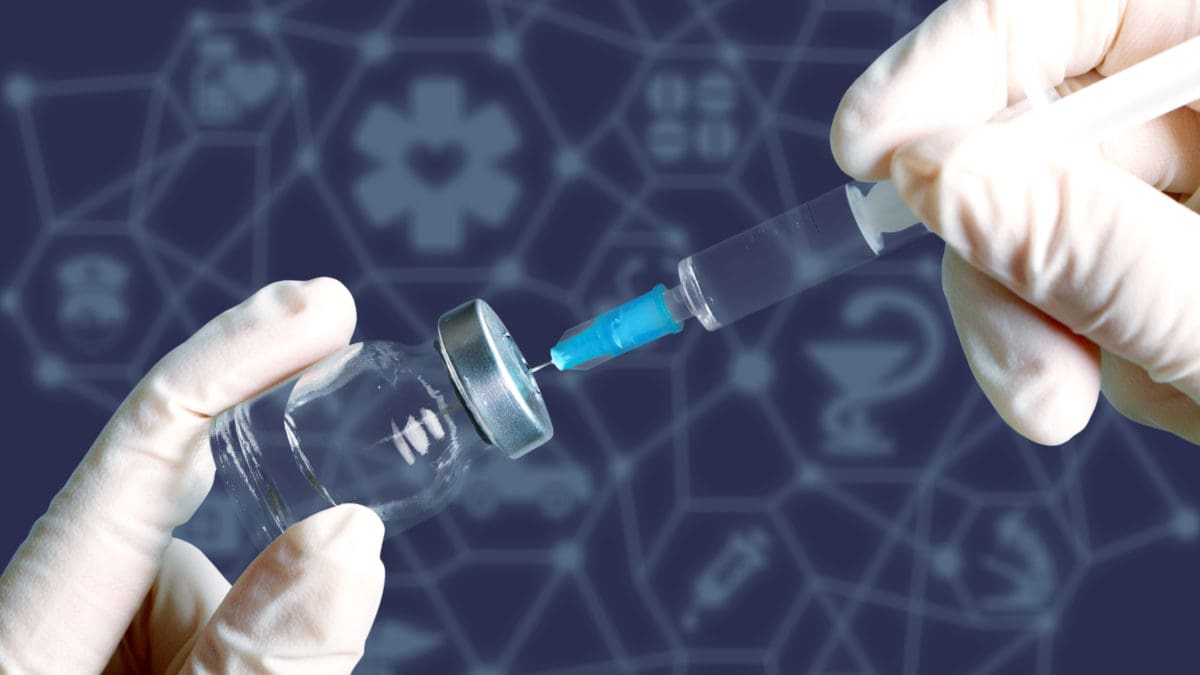Three-quarters of people will take COVID-19 vaccine, says Ipsos MRBI tracker survey for IPHA


Three-quarters of people will take COVID-19 vaccine, says Ipsos MRBI tracker survey for IPHA
Biopharmaceutical industry says breakthroughs are guided by safety, quality and efficacy, and urges public to get immunised as vaccines are rolled out
Three-quarters of people will take a COVID-19 vaccine, according to the results of a survey by Ipsos MRBI for the Irish Pharmaceutical Healthcare Association (IPHA) which represents the international research-based biopharmaceutical industry.
The survey shows that 75% of people will take a COVID-19 vaccine. Almost one-fifth, or 18%, were unsure while 7% said they will not take one.
As many women as men, or 75%, said they will take a COVID-19 vaccine.
The age group most likely to take a COVID-19 vaccine were the over-65s, followed by people aged between 55 and 64. In these groups, 86% and 80%, respectively, said they will take a COVID-19 vaccine. Of the 7% of people overall who said they will not take a COVID-19 vaccine, this level was highest among 25 to 34-year-olds.
The figures show a 20–point rise in the number of people who will take a COVID-19 vaccine since the last published results in October of the Ipsos MRBI COVID-19 vaccine tracker survey for IPHA. Then, 12% of people said they would not take it – down five points to 7% in this latest set of results. The number of people who said they were unsure is down 15 points since October.
More than 50 COVID-19 vaccine candidates are in trials, according to the World Health Organisation (WHO). Vaccines go through a three-stage clinical trials process before they are sent to regulatory agencies such as the Food and Drug Administration or the European Medicines Agency for approval. The last stage, Phase III, involves tens of thousands of tested patients.
Oliver O’Connor, Chief Executive of IPHA, said: “In less than a year, the approvals of the first COVID-19 vaccines in the EU are a key milestone in the response to COVID-19. The first EU marketing authorisations for COVID-19 vaccines offer hope for controlling the pandemic. With the prospect of more COVID-19 vaccines on the way, this is a time to value science in society.
“Our latest survey shows there is a strong public appetite for taking a COVID-19 vaccine. Immunisation on a sufficient scale is all that separates us from an indefinite series of lockdowns. It is vital that as many people as possible get vaccinated so that we can all return to normality or, at least, some version of it.
“We would ask people to bear with the health authorities as they roll out the vaccination programme nationwide. Our public health experts and officials, as well as frontline healthcare workers and the Government, are working hard to inoculate the population on a phased basis. That will take time so we should try to be patient. Our industry, meanwhile, is continuing to manufacture as many vaccine doses as it can at speed and scale. As well as working on supply, it is targeting more vaccines for regulatory approval. Together, we will eventually emerge from this pandemic with renewed hope and a stronger belief in science.”
Immunisation is a global health and development success story, saving millions of lives every year. We have vaccines to prevent more than 20 life-threatening diseases, helping people of all ages live longer, healthier lives. The WHO estimates that vaccines save up to three million lives every year.
With the exception of clean, safe drinking water, vaccination is one of the most successful and cost-effective public health interventions ever. Vaccines have ridded the world of smallpox, driven polio to the brink of eradication, and virtually eliminated measles, diphtheria and rubella in many parts of the world. HIV treatment and prevention mean what was once a death sentence is now a chronic disease.
IPHA has urged parents to continue to bring their children to their GPs for primary childhood immunisations. The industry group encouraged others in at-risk groups, such as pregnant women, over-65s and people living with long-term medical conditions, to get their normal vaccinations.
During COVID-19, our industry continues to manufacture medicines and supply them to patients, contribute to the search for COVID-19 vaccines and treatments, help local charities, hospitals and voluntary groups, and create significant economic value through exports, jobs and tax revenue.
ENDS
About The Survey
Ipsos MRBI conducted 1,001 telephone interviews with adults aged over 18 between January 4th and 14th, 2021. The sample was nationally representative for age, gender, geography and social class.


